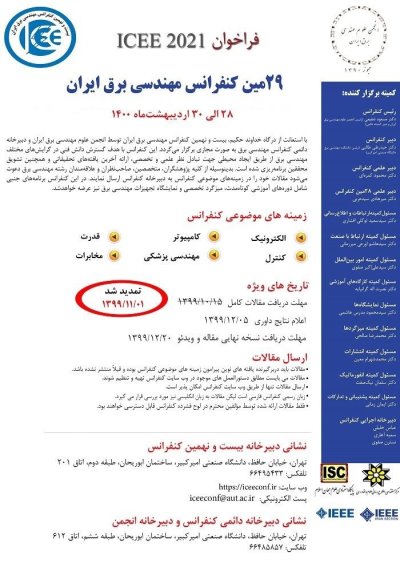0% Complete

نویسندگان :
کلمات کلیدی :
چکیده :
لیست مقالات بایگانی شده
Azam Bastanfard - Dariush Amirkhani
افروز رفعت ماه - مهدی میری - نوید یثربی
محمدرضا موسوی خادمی - غلامرضا زارع پلکوئی - مرتضی موسوی خادمی
Hossein Mohammadi Firozjae - Javad Zeraatkar Moghaddam - Mehrdad Ardebilipour
Samira Arab Ameri - Kamal Mohamedpour - Mohammad Javad Azizipour
Zohreh Abbasi - Mohsen Shafieirad - Amir Hossein Amiri Mehra - Iman Zamani
Soheil Sheikh ahmadi - Farzad Hashemzadeh - Mohammad Ali Badamchizadeh
Melika Khajeh - Azam Bastanfard - Dariush Amirkhani
Arash Iranfar - Mohammad Soleymannejad - Behzad Moshiri - Hamid D. Taghirad





